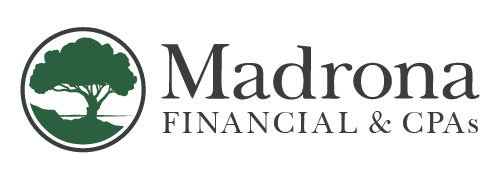
Due to the regular, individual income tax return filing deadline (April 15th) being on a Sunday, and the Washington D.C. Emancipation Day Holiday being observed on April 16th, the 2018 Tax Day has moved to Tuesday, April 17th. This is also the deadline to file for an extension on your taxes. With the tax filing deadline looming, it’s important for you to review your current tax planning strategies to help ensure they’re still meeting your needs. Tax diversity in your retirement plan is key. Since different types of investments impact your taxes differently, it’s important to determine exactly how much you should have in each tax bucket, and to help minimize your overall tax burden in retirement. It’s no secret that taxes are some of the biggest expenses facing retirees today. Are you prepared for Uncle Sam to collect? Here are a few quick tax tips to consider not just ahead of Tax Day, but for all year round.
Create a Charitable Giving Strategy. Philanthropy is an important aspect in many people’s lives because there’s no better feeling than knowing you’re doing your part to help a great cause, and to help improve the lives of those less fortunate than you. As an added bonus, there are a lot of ways you can help reduce your tax burden by being strategic with your charitable giving. But first, make sure that you stress test your portfolio’s longevity before making financial gifts to charity. Then, do your due diligence and check up on the charity’s effectiveness to know what percentage of their revenues go to actual programming, and how much goes to administrative and fundraising expenses. Next, it’s important to understand the rules about deductibility because while gifts to most public charities will be tax-deductible, other contributions to certain organizations like political groups and foreign charities may not be. Finally, you may want to consider using your RMDs for charitable contributions. If you don’t need the money and you take RMDs from your IRA, you can put up to $100K from your RMD directly into a charity, known as a Qualified Charitable Distribution. And, if you want to make charitable giving part of your estate plan, then consider naming a charity as an IRA beneficiary.
Rollover with a Plan. One of the most common retirement account rollovers is from your employer-sponsored 401(k) plan. You can maintain the current balance of your 401(k) when rolling it over into an IRA so long as you do so carefully, and with a plan. First, you want to make certain that the funds do not pass through you, meaning they are assigned directly from one account to the other. If the funds do pass through you, then you have 60-days to deposit the money into the new account. Failure to do so will result in the government looking at it as if you cashed-out and thus, you will be required to pay tax at ordinary income rates on the balance that is withdrawn.
Proper Management of Distributions. Once you reach age 59 and a half, you can generally begin taking your distributions from a 401(k) plan or traditional IRA penalty-free. And, once you reach age 70 and a half, you are required by law to begin taking your minimum distributions from your account. If you forget, then you could be subject to a penalty of 50% of the required amount you failed to withdraw. Outside of a Roth IRA, where contributions are made post-tax, the money you withdraw from a traditional IRA or pension plan will be taxed as ordinary income because your contributions were made pre-tax.
Be Vigilant. According to the IRS, there’s been an increase in online tax scams as well as aggressive phone scams. That’s why, every year the IRS releases their “Dirty Dozen” list (Click for 2018 Recap of This Year’s Scams) of known tax scams to look out for in 2018. However, there are some important “telltale” signs that you can look for in helping you spot a scam. We’d like to pass along a friendly reminder to you, and everyone close to you, to be aware of potential scams.
As if the amount we pay in taxes isn’t bad enough, the whole preparation process of getting all the information together is no walk in the park either. In the end, no matter what lies ahead for you in your life in retirement, make sure you have discussed specific tax strategies with your trusted financial professional. There may be serious implications on your financial health if not understood or properly planned for. We understand that it’s just as important to watch what’s going out the door, as it is to monitor what’s coming in. So, if you have questions about ways to minimize your tax burden in retirement, CLICK HERE to learn more about our process and don’t forget to request your complimentary, no obligation review. Helping you safely reach the goals you have for retirement is our top priority.

